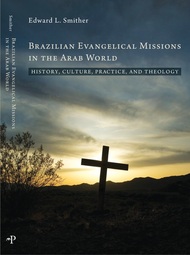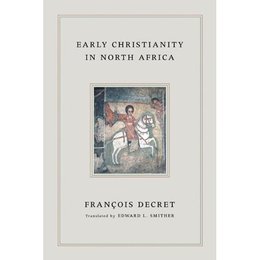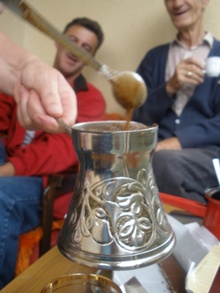posts
|
Let's explore one more Brazilian approach to mission in the Arab world, also excerpted from chapter 4 (pp. 176-78) of Brazilian Evangelical Missions in the Arab World:
Sport has often been regarded as an international language that breaks down cultural barriers and promotes friendship, and Brazilians—with their excellence in basketball, volleyball, martial arts, and, of course, soccer (futebol)—speak this language quite well. Arabs also seem to welcome Brazilian transcultural workers—athletic or not—because Ronaldo, Ronaldino, and Roberto Carlos (Brazilian soccer stars) are household names in the Arab world.Brazilian workers serving among Arabs are making the most of this strategic connection and have proven to be innovative in using sports in ministry. . . . in one Arab context, a team of Brazilian workers has put on a series of soccer camps in some very conservative and restricted villages, including those inhabited by refugees. One worker reported that with a soccer ball and jersey, they have accessed places where doctors and teachers have never been allowed to enter. After receiving permission to work with the children from tribal leaders, the men have worked with the boys, and their wives have coached the girls. As this group also integrates moral teaching from a biblical foundation in their coaching, each practice ends with some group reflection on what was learned during the experience.Apparently, the soccer camps have provided a welcome diversion from the difficulties of daily living for these children and their parents also seem to appreciate the constructive physical activity that their children are receiving.The fact that Arabs like Brazilians and know their soccer players has probably allowed this team of workers access into an otherwise restricted area where Westerners are not welcomed. In short, Brazilian missionaries are effectively using sports as a means to overcome barriers of mistrust, to build relationships, and to communicate Christian teaching. One worker concluded, “I think that sports ministry in the Arab world is very important and should continue to be used,” while another added, “I love using sports—something I really enjoy—for ministry.” In chapter 4 of Brazilian Evangelical Missions in the Arab World, I discuss a variety of strategies and approaches to mission used by Brazilians. It seems evident that Brazilians are most committed to evangelism (proclaiming the Gospel) in their ministries. On pp. 166-67, I write:
While most Brazilians surveyed indicated that evangelism was a key part of their ministries, it should be noted that this ministry has occurred largely on a personal or small group level. In part, this is due to the fact that public proclamation is not allowed in most parts of the Arab world. It is also the case because Brazilians seem naturally disposed to personal evangelism because of the relational nature of their culture. After recounting how an Arab friend had come to faith in Christ, one worker shared, “Most of my evangelism has been through building personal relationships.” Another added, “I love to build relationships and see people respond to God’s love.” Building from this relational foundation, I also show in the chapter that Brazilians approach evangelism through hospitality, by connecting with friends who have been listening to Gospel programming via satellite TV or the internet, and through distributing Scripture. I was encouraged to learn that my translation of Decret's Early Christianity in North Africa was reviewed by the well-known Patristics scholar Geoffrey Dunn of Australian Catholic University in the July 2012 edition of the Journal of Ecclesiastical History. Please consult JEH for the entire review but below is an excerpt:
This book is an English translation of Decret’s Le Christianisme en Afrique du nord ancienne. It provides a general survey of north African Christianity from its emergence at the end of the second century until the Arab incursion in the second half of the seventh century. It provides an overview for those who have no familiarity with the story of Christians in what is today Algeria, Tunisia and Libya. The reader is introduced to Perpetua, Tertullian, Cyprian, the Donatists and Augustine. . . In summary, this is a solid enough volume of value to someone meeting ancient north African Christianity for the first time. The following is excerpted from pp. 64-65 of Brazilian Evangelical Missions in the Arab World:
In chapters 2 and 3, we raise the question, what does it mean, culturally speaking, to be a Brazilian evangelical missionary in the Arab world? Forty-five past and present Brazilian evangelical workers were invited to comment and reflect upon their own “Brazilianness” and how they have adapted in the Arab world. The perspectives of ten Brazilian mission leaders have also been included. I have treated Brazil as an affinity bloc of cultures in which there is clear diversity as well as some elements of cohesiveness. I have approached the Arab world in the same way. Hence, the framework for discussing Brazilians in the Arab world has been to reflect upon two affinity blocs and to ask members of one group (Brazilians) to share their collective experiences living in a second group (the Arab world) specifically regarding aspects of culture that have clear missiological implications. In chapter 2 we . . . deal with four areas—race, economics, time, and communication—while in chapter 3 we . . . consider family, relationships, hospitality, and spiritual worldview. After first consulting the appropriate cultural and missiological literature and then listening to the experiences of Brazilian missionaries and mission leaders, it has become evident, culturally speaking, that Brazilians are not Arabs and that Brazilians must surely work to adapt culturally. However, it also appears that there is generally less cultural distance between the Brazilians surveyed and their Arab contexts than what is normally experienced by Western missionaries in the Arab world, allowing Brazilian evangelical work to be less intrusive. At the 2012 SE regional Evangelical Missiological Society meeting, I gave a paper from this chapter entitled "Missional Hospitality: Brazilian ministering to Arabs" which can be accessed HERE. Missions sending from Brazil: Spotlight on Crossover Communications International (CCI-Brasil)9/4/2012
Following posts on Missão Antioquia and PM International, we'll consider one more Brazilian missions organization committed to sending laborers to the Arab world--Crossover Communications International. The following is taken from pp. 186-88 of Brazilian Evangelical Missions in the Arab World:
In 1987, Crossover Communications International was founded in the United States by Bill Jones and João Mordomo with a vision to “see God glorified among all peoples.” Initially focusing on short-term missions from North America, CCI began to emphasize sending long-term workers to Eastern Europe and to the former Soviet Union in 1990. In 1995, CCI began work in Moldova and, after a successful decade of church planting efforts, CCI Moldova was established in 2006 in order to send Moldovans in mission. Currently, CCI has offices in the United States, Australia, Moldova, and Brazil. Recognizing the great missions-sending potential of the Brazilian church, CCI-Brasil was founded in 1996 by Mordomo and a Brazilian pastor. In 1999, the group sent its first Brazilian workers to Turkey and, presently, CCI-Brasil’s sole focus is mobilizing Brazilians for ministry in the Muslim world. Driven by the motto “we love God; we love God’s global glory,” CCI-Brasil’s core values include authentic Christian living, biblical authority, and world evangelization. Also, the group emphasizes reaching Muslim people groups, pioneering church planting, and establishing local ministries out of those churches. What does CCI-Brasil offer in the way of pre-field training? Mordomo shared, “We do not have a formal training program. Rather, we assess where a candidate is and seek to fill the gaps of their training. Given the needs, we can offer training in Bible, spiritual life, and professional business-type training. Some of these needs can be met through partnering organizations closer to the candidate’s home city.” He continues, “If needed, we may ask a candidate to come to Curitiba for two years and be a part of a two-year program that includes Biblical training, missiology, church planting experience (inside of Brazil), and business and professional training. We have started a business consultancy to meet this [latter] need.” Also, twice a year, CCI sponsors a Muslim ministry training week in the Southern city of Foz do Iguaçu in which participants receive classroom training on Islamic theology and culture as well as practical training in meeting Muslims at the local mosque and in the community [As of 2009] CCI-Brasil [had] sent eight Brazilian workers to serve in five different Arab-Muslim countries. Also, there is a team in Foz do Iguaçu that ministers to Arabs locally, but also facilitates the Muslim ministry training just mentioned. In terms of ministry strategy, CCI’s priority is on church planting movements among Muslims—a ministry that implies a great emphasis on evangelism and discipleship. They’re also committed to prayer and partnering with other existing mission efforts in a region. Finally, in light of its convictions concerning tentmaking and transformation in mission, CCI-Brasil has been quite innovative in developing Business as Mission strategies. Continuing to reflect on missions sending from Brazil, this post explores briefly the history, values and work of PMI (Povos Muçulmanos International or "Muslim Peoples International”), excerpted from pp. 182-84 of Brazilian Evangelical Missions in the Arab World:
PM International began in 1984 through the initiative of Pablo Carillo, a Mexican missionary who had previously served with Operation Mobilization in several Arab countries. Carillo’s initial vision was to place Latin Americans in North Africa and thus, “Project Maghreb” was born. Later, as Ibero-Americans were beginning to serve in the Middle East, Central Asia, and the greater Muslim world, the group changed its name to Povos Muçulmanos International (“Muslim Peoples International”) in 1991 to reflect this broader focus. While a number of Brazilians had been involved with PMI since its early years, a Brazilian national office was established in 1998. [For many years, there was an international office in Spain], while national offices are located in Argentina, the United States, and Brazil. The vision of PMI Brazil is to “to cooperate with the Brazilian evangelical church by mobilizing and directing human and financial resources in order to establish the church of Jesus Christ among the Muslims.” Daniel Calze, the current director of PMI Brazil adds: “There are approximately 150 thousand evangelical churches of all kinds in Brazil, and some say that there are 25 million evangelicals. As the largest Latin American church, we need to be involved in the biggest missionary challenge of the times—the evangelization of the Muslim world.” PMI is unique in that it is the only Brazilian missions organization solely focused on the Muslim world. As an organization, PMI’s key values include working together in teams, developing strategic platforms in restricted countries, effective cultural immersion, and ongoing pastoral care—both from the organization as well as from the worker’s sending church. Finally, PMI also emphasizes the strategic cultural connection between Brazilians and Muslims, an element discussed in detail in the previous chapter. Calze adds: “Why Latin missionaries or Brazilians? Because the work that has been done so far by Brazilian and Latin missionaries has shown that they adapt very easily to Muslim culture and that they share the gospel very effectively.” At present, there are approximately 120 workers from fourteen different Latin American countries serving with PMI in the Muslim world. A majority of those are Brazilian and around sixty Brazilians are serving with PMI in the Arab world. With a great commitment to evangelism, discipleship, and church planting, PMI is also quite holistic in its approach; and their workers are involved in sports ministry, medical care, and humanitarian work. To learn more about PMI, visit the home pages for their Brazilian (Portuguese only) USA (English), and international (Spanish) offices. Continuing a series of posts from my book Brazilian Evangelical Missions in the Arab World, let us consider the story of the first indigenous Brazilian missions organization
Missão Antioquia (Antioch Mission) excerpted from pp. 55-56: In the midst of a charismatic renewal in the state of Paraná in the late 1960s, two young Presbyterian pastors, Jonathan Ferreira dos Santos and Décio de Azevedo, founded a Bible school. Preaching, prayer, healing, miracles, and holistic ministry to the surrounding communities characterized the school’s existence in this continual atmosphere of renewal. Though the school’s leadership was initially resistant to the idea of global missions, American missionary Barbara Burns and others who taught at the school were instrumental in sharing a global vision. As the community began to pray for the world, the first missionaries were sent to Portuguese-speaking Mozambique in the mid-1970s. Hence, not unlike the atmosphere of revival that first moved North Americans and others to Brazil in the mid-nineteenth century, revival within Brazil also pushed Brazilians to take notice of the rest of the world. In 1975, the school went one step farther and founded Missão Antioquia (Antioch Mission), Brazil’s first interdenominational and national missions organization. Azevedo was named the mission’s first president. In 1977, the mission opened a seminary and missionary training center in Paraná, which, along with the mission, moved to São Paulo in 1980. Missão Antioquia currently has ninety-two Brazilian missionaries on the field in nineteen countries—four of which are serving in Arab countries in North Africa and the Middle East. According to their website, their primary areas of ministry include evangelism, discipleship, church planting, children’s ministry, community development, and sports ministry, among others. The mission has not only sent Brazilian workers overseas, but it has modeled a spirit of unity and partnership through initiating the Associação de Missões Transculturais Brasileiras (Association of Transcultural Missions Agencies). To learn more about Missão Antioquia, visit their Portuguese only site HERE. |
Archives
November 2023
|





 RSS Feed
RSS Feed
